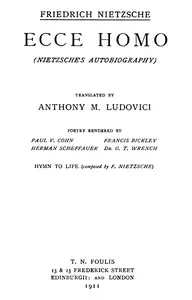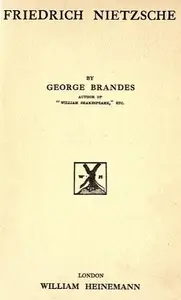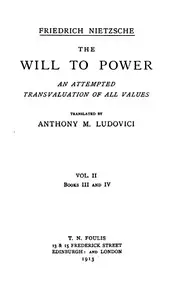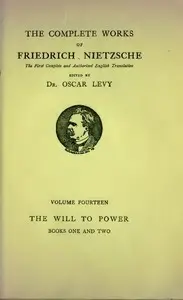"Human, All-Too-Human: A Book for Free Spirits, Part 1" by Friedrich Nietzsche is a journey through human existence, questioning traditional views and inviting readers to adopt a more realistic and human-centered understanding of the world. Written as a series of thought-provoking statements, this work challenges societal norms and explores what it means to be human, from morality to culture. The book introduces the concept of the "free spirit," a person breaking free from traditional beliefs on a difficult path towards self-discovery, marked by conflict with societal norms and a personal quest for truth. Nietzsche stresses acceptance of human weaknesses and the complex nature of morality, framing the "free spirit" as someone navigating life's complexities without illusions. This lays the groundwork for an exploration of the origins of moral values, the reasons behind human behavior, and the possibility of change within individuals and across cultures. Overall, it is a challenging and thought-provoking, yet strangely melancholy, examination of what it means to be human and the potential for growth beyond traditional thought.
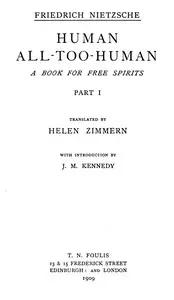
Human, All-Too-Human: A Book for Free Spirits, Part 1 Complete Works, Volume Six
By Friedrich Wilhelm Nietzsche
One man's collection of philosophical statements exposes the depths of human nature, urging readers to break free from traditional morals and embrace a raw, human-centric view of the world.
Summary
About the AuthorFriedrich Wilhelm Nietzsche was a German classical scholar, philosopher, and critic of culture, who became one of the most influential of all modern thinkers. He began his career as a classical philologist before turning to philosophy. He became the youngest person to hold the Chair of Classical Philology at the University of Basel in Switzerland in 1869, at the age of 24, but resigned in 1879 due to health problems that plagued him most of his life; he completed much of his core writing in the following decade. In 1889, at age 44, he suffered a collapse and afterward a complete loss of his mental faculties, with paralysis and probably vascular dementia. He lived his remaining years in the care of his mother until her death in 1897, and then with his sister Elisabeth Förster-Nietzsche. Nietzsche died in 1900, after experiencing pneumonia and multiple strokes.
Friedrich Wilhelm Nietzsche was a German classical scholar, philosopher, and critic of culture, who became one of the most influential of all modern thinkers. He began his career as a classical philologist before turning to philosophy. He became the youngest person to hold the Chair of Classical Philology at the University of Basel in Switzerland in 1869, at the age of 24, but resigned in 1879 due to health problems that plagued him most of his life; he completed much of his core writing in the following decade. In 1889, at age 44, he suffered a collapse and afterward a complete loss of his mental faculties, with paralysis and probably vascular dementia. He lived his remaining years in the care of his mother until her death in 1897, and then with his sister Elisabeth Förster-Nietzsche. Nietzsche died in 1900, after experiencing pneumonia and multiple strokes.

